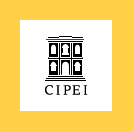Events
Resources
Contacts
The Economic Teacher: A transnational and diachronic study of treatises and textbooks of economics (18th to 20th century). Intra- and interlingual corpus-driven and corpus-based analysis with a focus on lexicon and argumentation

The research aims to document the evolution of political economy through its written language from 1750 to the post-World War II period. This project is selected to stimulate cooperation and cross-fertilisation among scholars in economics and scholars in linguistics, lexicography, lexicology, computational linguistics (LC) and intellectual history. On the one hand, economists and historians of economics normally approach past texts as either theoretical sources, or as resources to study relationships between their contents and the historical context in which they appear. Their typical questions are the relationships between past theories and contemporary theories, or, in a more historical vein, the contribution of economic ideas to policy making, the relationships between economic ideas and philosophical inspirations, etc. On the other hand, linguists who study Languages for Special Purposes (LSPs) may be interested in economic texts as sources for lexicology or discourse analysis; and historians of literature may be interested in economic texts as literary performances associated to artistic, literary or cultural movements. The challenge of our project is to put such different scholars at work together, around common topics of research (i.e. corpus; see Freddi 2014[1]), to discover what economists had to learn from linguists and what the latter had to learn from economists about the way to approach, de-structure and analyse economic texts.
Recently, new technologies have could made available vast quantities of digital texts, bringing to light an ever-increasing share of human interaction, communication, and culture. If for economists, the information encoded in texts has always been an important complement to the more structured kinds of data traditionally used in research, recent years have seen an explosion of empirical economic research using text as data.
If there is already a large literature which measures texts in finance (Betsch-Rainer-Wolborska-Lauter 2017; Rainer 2017), in macroeconomics and in political economy (Colander 2005) using politician’s and banker’s speeches to study the dynamics of political agendas and debates (Cendron-Tusset 2014), no attention has so far been paid to larger historical corpora of economic texts.
Our aim in this research is to construct a diachronic and multilingual (including Italian, French, English, German, Spanish and Portuguese) corpus of economic texts (Sosnowski 2006)[1].
The research is in continuity with a broader project – brought on in various steps in the last decades – whose object has been the study of the phenomenon of institutionalisation and dissemination of economic ideas in the eighteenth, nineteenth, and early twentieth centuries. A more recent research project aimed to reconstruct the evolution of political economy in Italy in the so-called liberal age (1848-1922) through a systematic analysis of texts and treatises of economics. These were considered the works in which economics was systematised, “canonised” and “institutionalised” as a subject of teaching and spread of knowledge. The goal was that of discovering the pathways of the spread of economics, the ways in which economics is transmitted and received in Italy in a period characterised by an on-going scientific and intellectual integration of the country. This research intended to produce a systematic bibliography of all manuals and treatises published in the period considered (together with all the material which served as a base for them: lecture notes, inaugural lectures, etc.), and of the literature which was connected to the spread of manuals (reviews, notes, debates, essays) (Augello-Guidi 2007; 2012)[1].
A second parallel step consisted in the analysis of the circulation of the economic language through translations across frontiers. The LLP/Erasmus Multilateral Project “Economic e-Translations from and into European Languages. An Online Platform (EE-T)” (2011-13) brought together scholars from different disciplines (historians of Economics, linguists and historians of literature) and from many countries (Spain, Portugal, France, Greece and Germany) working jointly for two years and crossing the traditional boundaries of their respective fields of study. The EE-T Project produced inter alia the EE-T Portal – Economic e-Translations Portal –addressed to higher education teachers and researchers in the field of History of Economic Thought (http://cipei.unipi.it/risorse/the-ee-t-translations-portal/). The EE-T Portal provides access to several sources in the field of the history of the economic thought such as: bibliographical database of translations of Economic texts, multilingual guide to the use of the Database, reviews of online archives, research sources, digitalized translations of the main texts of the history of economic thought, research papers, video lectures, guides to translations of Economic texts.
M.M. Augello and M.E.L. Guidi, eds, L’economia divulgata. Stili e percorsi italiani, 1840-1922, Milano, FrancoAngeli, 2007, 3 vols.; M.M. Augello, M.E.L. Guidi (eds), The economic reader. Textbooks, Manuals and the Dissemination of the Economic Sciences during the 19th and Early 20th Centuries, Routledge, 2012.
E. Carpi, M.E.L. Guidi (eds), Languages of Political Economy. Cross-disciplinary studies on economic translations, Pisa, PUP, 2014.
R. Sosnowski, Origini della lingua dell’economia in Italia. Dal XIII al XVI secolo, Milano, FrancoAngeli, 2006.
M. Freddi, Linguistica dei corpora, Roma, Carocci, 2014.
